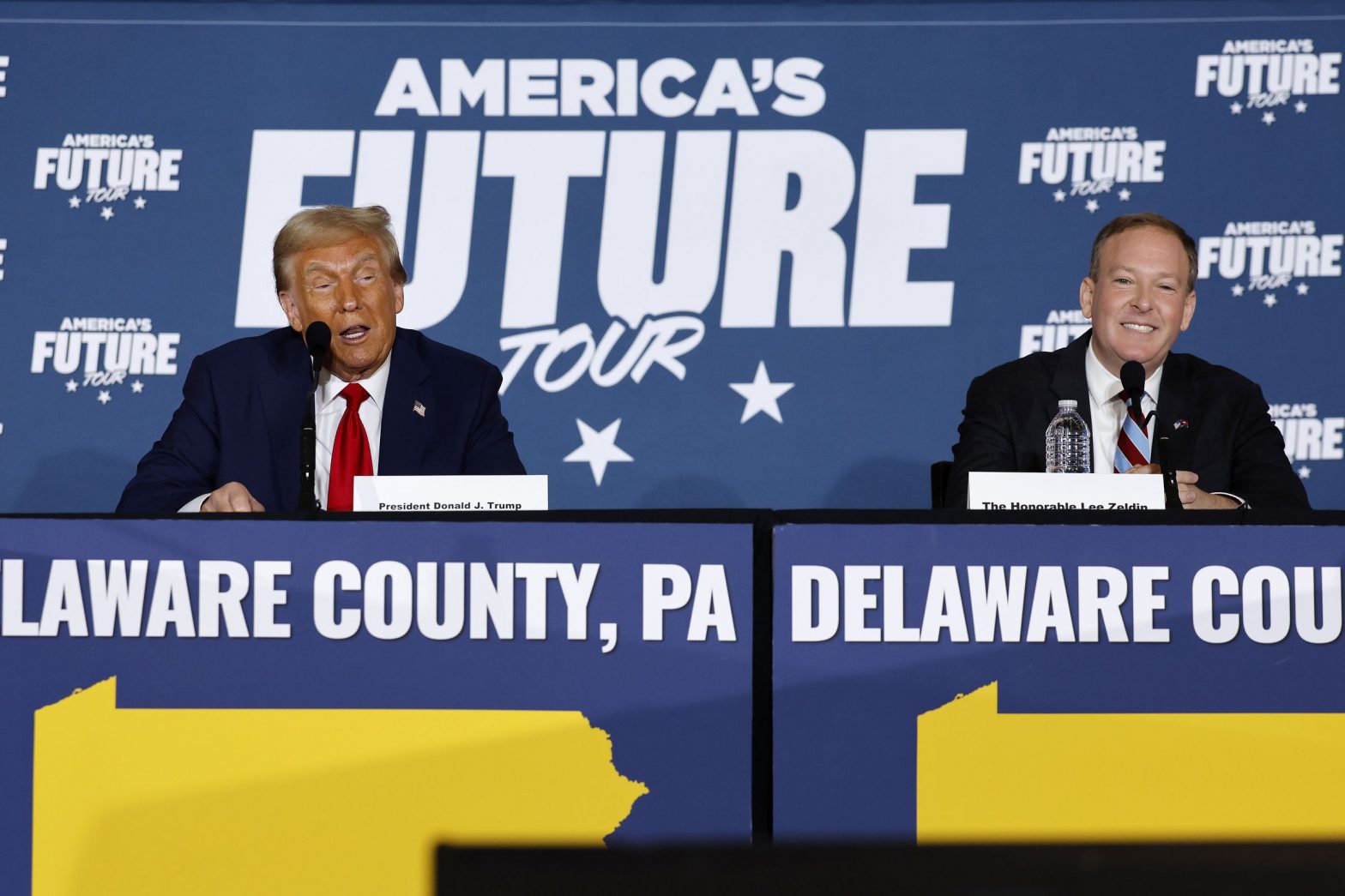/
Trump’s choice to lead the Environmental Protection Agency is making AI a priority.
:format(webp)/cdn.vox-cdn.com/uploads/chorus_asset/file/25728773/2181797828.jpg)
Artificial intelligence is top of mind for President-elect Donald Trump’s pick to lead the Environmental Protection Agency, former Rep. Lee Zeldin (R-NY). Zeldin plans to help “unleash US energy dominance” and “make America the AI capital of the world,” he said in a post on X today.
The EPA regulates emissions that pollute the air and cause climate change, giving it a huge role to play in how much the rise of energy-hungry AI leads to a jump in power plant pollution. From the looks of it, though, the EPA’s incoming leader is prioritizing making sure environmental protections don’t get in the way of doing business — particularly when it comes to expanding AI data centers.
Environmental advocates are already concerned about Trump’s plans for the EPA. “We can meet demand for data centers without scrapping EPA rules to clean up dirty power plants and cut climate pollution,” Manish Bapna, president of the Natural Resources Defense Council (NRDC), said in a statement responding to Zeldin’s appointment. “We count on the EPA to protect clean air and water and public health and that’s what we’ll hold the next administrator accountable to do.”
If he makes good on campaign promises, Trump’s next term in office is sure to be a deregulation spree. The last time Trump was in the White House, his administration rolled back more than 100 environmental regulations and stacked the Supreme Court with justices whose decisions have curbed the ability of federal agencies to regulate industry.
Zeldin will “ensure fair and swift deregulatory decisions that will be enacted in a way to unleash the power of American businesses, while at the same time maintaining the highest environmental standards,” Trump posted on Truth Social yesterday.
During a three-hour interview with Joe Rogan on October 25th, Trump also complained about environmental impact studies that he said made it more difficult to complete his own building projects in the past. “The environmental stuff was always horrible. They could slow a project down 10 years, 15 years,” he said. “Remember this, it costs much more to do things environmentally clean.”
Zeldin has also faced off with environmental groups over the years. The League of Conservation Voters (LCV), which rates lawmakers’ environmental track records, has given Zeldin an abysmal 14 percent lifetime score. He has accepted more than $269,000 from the oil and gas industry and close to $1.5 million from real estate while running for Congress, according to the nonprofit OpenSecrets that tracks campaign contributions. (Trump picked fossil fuel lobbyists to lead the EPA when he was last in office.)
Some environmental advocates are holding out hope that they’ll be able to salvage long-standing environmental rules with Zeldin, rather than seeing a worst-case scenario outlined in Project 2025 that would all but dismantle the EPA. (Although Zeldin voted to slash the EPA’s budget by 25 percent in 2017, which could have eliminated 3,200 staff positions at the agency.)
“While we did not always see eye to eye with Rep. Zeldin, we did work to find common ground on several issues during his time in office,” Julie Tighe, New York League of Conservation Voters president, said in an email. She pointed to Zeldin’s opposition to offshore drilling during Trump’s previous administration as an example.
Data centers, which tend to gobble up more energy when used for training AI, have become a hot-button environmental topic. Until recently, gains in energy efficiency have allowed data center power use to stay relatively flat. Now, with the popularity of AI and efficiency gains waning, data center power demand could climb 160 percent by 2030, according to Goldman Sachs Research. The US has more data centers than any other country, and their growing appetite for electricity could lead to more pollution from the power sector.
To their credit, American tech companies have been among the biggest purchasers of renewable energy. Big tech companies, including Google and Microsoft, have also signed a slew of new agreements this year to try to revive the nuclear energy industry in a bid to shore up another source of carbon pollution-free power. Nevertheless, both Google and Microsoft have seen their carbon footprints grow as they develop new AI tools.
Typical data centers still plug into the local power grid, and the US gets 60 percent of its electricity from fossil fuels. Trump previously repealed an Obama-era plan to slash power plant emissions and replaced it with weaker regulations, a decision the EPA estimated would lead to thousands more deaths and “exacerbated” asthma cases from pollution. The Biden administration introduced tougher standards for coal-fired power plants but punted a decision on emissions from the nation’s existing fleet of gas-fired plants until after the election. Now, with Trump headed back to the White House, these rules are in jeopardy.
“The two things we know for certain are that Trump has tried to cripple EPA in the past and he has tasked his new pick to head EPA with rolling back dozens of clean air and water regulations,” Jeremy Symons, senior adviser to Environmental Protection Network and former EPA climate adviser, said in an email to The Verge. “Hopefully Zeldin can rise above his alarming EPA voting record and will recognize there is broad and bipartisan public support for EPA’s work to protect the air we breathe and the water we drink,” Symons added.
